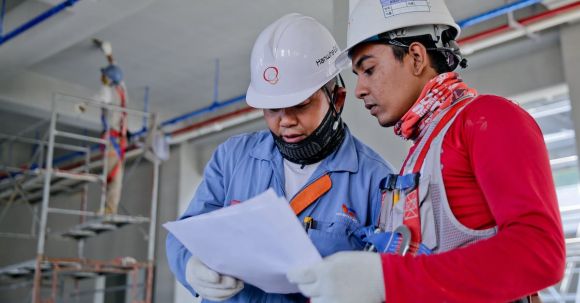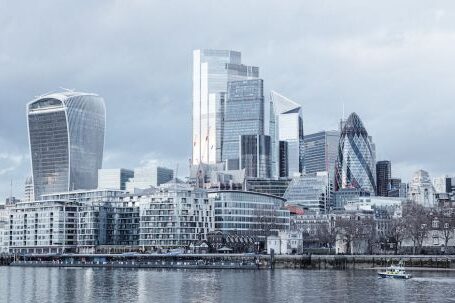The construction industry is undergoing a significant transformation in the UK, as new technologies revolutionize the way buildings are designed, constructed, and maintained. From 3D printing to virtual reality, these innovations are not only improving efficiency and productivity but also enabling architects to push the boundaries of design. In this article, we will explore some of the most exciting building technologies being used in the UK, and how they are reshaping the future of construction.
Designing in the Virtual World
Virtual reality (VR) is no longer limited to gaming and entertainment; it has found its way into the construction industry. Architects and designers are now using VR to create immersive experiences for clients, allowing them to visualize and interact with their future buildings before construction even begins. This technology not only enhances communication between architects and clients but also enables better decision-making throughout the design process, ultimately leading to more efficient and cost-effective construction projects.
Building with Robots
Robots are no longer confined to assembly lines; they have become an integral part of the construction process. In the UK, robotic technology is being used to automate repetitive tasks such as bricklaying and painting, freeing up human workers to focus on more complex and creative aspects of construction. These robots are not only faster and more accurate than their human counterparts but also help reduce safety risks and labor costs. With further advancements in robotics, we can expect to see even more sophisticated machines taking over various construction tasks in the future.
Sustainable Solutions
Sustainability has become a top priority in the construction industry, and the UK is leading the way in adopting eco-friendly building technologies. From green roofs to solar panels, these sustainable solutions are not only reducing the carbon footprint of buildings but also providing long-term cost savings for owners. Furthermore, the use of recycled materials in construction is gaining momentum, as companies strive to minimize waste and promote a circular economy. With the government’s commitment to achieving net-zero carbon emissions by 2050, we can expect to see even greater emphasis on sustainable building practices in the coming years.
3D Printing: Building the Future
One of the most groundbreaking technologies in construction is 3D printing, which allows for the rapid production of complex building components. In the UK, 3D printing is being used to construct entire buildings, from walls to floors, in a fraction of the time and cost compared to traditional methods. This technology not only enables architects to create intricate designs with ease but also reduces material waste and labor requirements. As 3D printing continues to evolve, it has the potential to revolutionize the construction industry, making building construction faster, cheaper, and more sustainable.
The Future of Construction
The adoption of these building technologies in the UK is just the beginning of a larger revolution in the construction industry. As new innovations emerge and existing technologies continue to improve, we can expect to see even more exciting changes in the way buildings are designed, constructed, and maintained. From AI-powered construction software to autonomous construction vehicles, the possibilities are endless. As architects, engineers, and developers embrace these technologies, they are not only transforming the construction process but also shaping the future of our built environment.
In conclusion, the UK construction industry is at the forefront of the technological revolution, with building technologies such as VR, robots, sustainable solutions, and 3D printing changing the way buildings are conceived and constructed. These innovations not only improve efficiency and productivity but also enable architects to push the boundaries of design. As the industry continues to embrace new technologies, we can expect to see even more exciting advancements that will revolutionize the construction sector for years to come.





